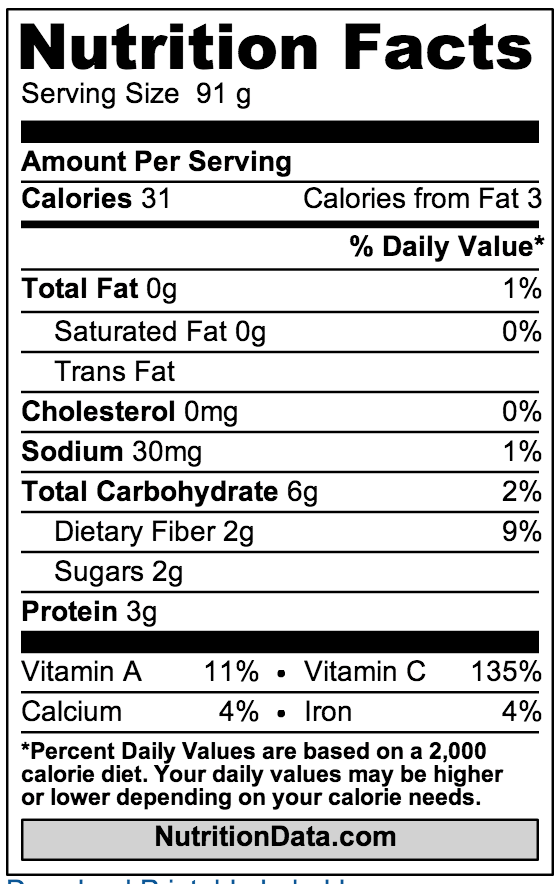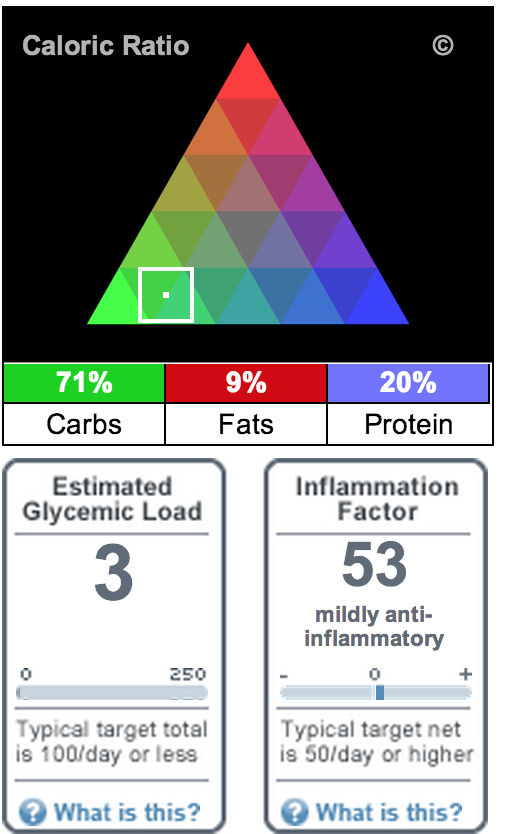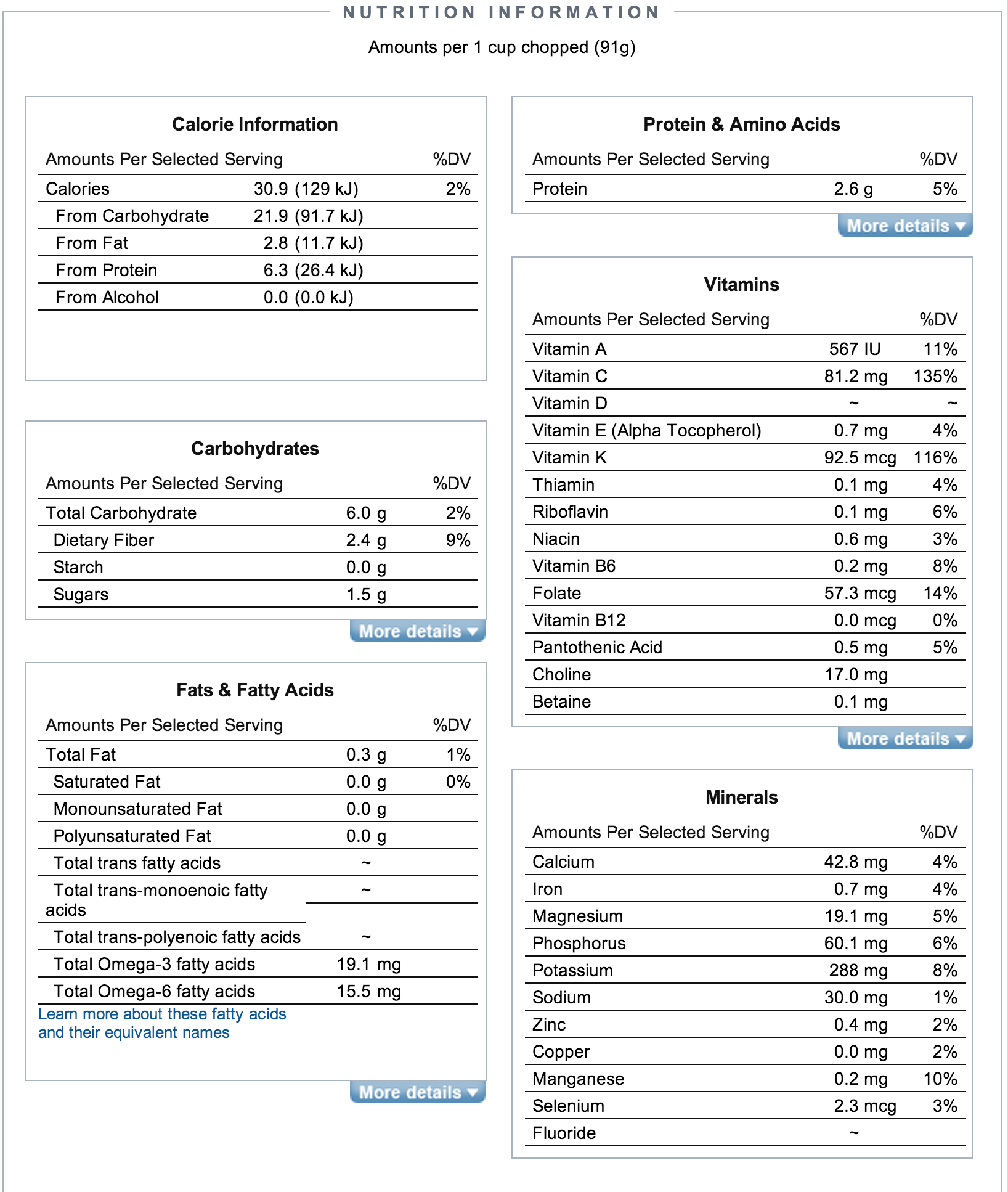Broccoli
The broccoli (Brassica oleracea) is a plant in the cabbage family, which produces an edible green flower. This is a highly nutritious plant which is thought to help prevent diseases such as cancer and provides valuable nutrients for the body. Broccoli can also be sprouted, or grown as a microgreen.
Broccoli Sprouts
Broccoli sprouts are a good source of healthy greens, known by science to prevent a variety of diseases. These sprouts are relatively easy to grow and can be produced in under a week, from dry seed to finished sprouts. The Broccoli sprout has a bit of a sulphur smell when sprouting, due to certain biochemicals that are released during the sprouting process.
| Time to Maturation | 3-6 days |
|---|---|
| Seeds for 1QT sprouter | 3 tbsp |
| Soak Time | 8-12 hrs |
| Rinse | 8-12 hrs |
| Yield | 5:1 |
Famous for it's antioxidant content. Broccoli sprouts can contain something like 50 times the sulfurophane found in mature broccoli, by weight, so you get as much antioxidant in 1 ounce of Broccoli Sprouts as you would if you ate 3 pounds of fully grown Broccoli (Broccoli sprouts were patented! We're just relating what the published research (©Johns Hopkins University 1997) states). Broccoli is a very tasty sprout - it is the fresh vegetable our son liked best, until he became a teenager @;-D
We spent over 13 years testing organic broccoli seed. Only once in all those years did we find any that sprouted well and tasted great. Finally we have found some more! We hope we can get this fantastic seed for years to come - well - it won't be the same seed - what I mean is that we hope the farmer who produced this lot of seed will produce great lots for years to come. Being the loyal folks we are, we will continue to offer our long loved conventional Broccoli as well.
source: sproutpeople.org
see also
We spent over 13 years testing organic broccoli seed. Only once in all those years did we find any that sprouted well and tasted great. Finally we have found some more! We hope we can get this fantastic seed for years to come - well - it won't be the same seed - what I mean is that we hope the farmer who produced this lot of seed will produce great lots for years to come. Being the loyal folks we are, we will continue to offer our long loved conventional Broccoli as well.
source: sproutpeople.org
Steps to Grow
- Soak for 8-12 Hours
- Rinse thoroughly every 8-12 hours for 3-6 days
- Consume or store in fridge when done
Broccoli Microgreens
Broccoli microgreens can be grown in soil, in greenhouse trays. They are an excellent source of leafy green nutrition which can be produced in just a couple of weeks.
| Time to Maturation | 10-15 days |
|---|---|
| Seeds for 5x5 Tray | 2 tbsp |
| Seeds for 11x11 Tray | 1/3-1/2 cup |
| Seeds for 11x22 Tray | 2/3 - 1 cup |
| Soak Time | 8-12 hrs |
| Rinse | 8-12 hrs 2-3 times |
| Root Length for Planting | 1/16-1/8 inch |
Steps to Grow
- Soak for 8-12 Hours
- Rinse 2-3 times, or until roots are 1/16-1/8 inches long
- Spread sparsely over pre-moistened soil
- Cover with upside-down tray for 2-3 days
- Place microgreens under light after seed hulls are shed
- Mist plants every day or two
- Harvest when leaves turn green. Prior to harvest minimize watering so the plants store best in the fridge.
- Cut just above the soil medium.
see also
Broccoli Nutrition
Disease Prevention
In 1992[2] a team of Johns Hopkins University scientists isolated a cancer-fighting phytochemical in broccoli called glucoraphanin, which is the glucosinolate precursor of sulforaphane (SGS).[3] When chewed, broccoli releases glucoraphanin and myrosinase, an enzyme found in another part of the plant cell, which work together to produce sulforaphane, which, in turn, activates a transcription factor, Nrf2 in the cell. Once activated, Nrf2 then translocates to the nucleus of the cell, where it aligns itself with the antioxidant response element (ARE) in the promoter region of target genes. The target genes are associated with process which assists in regulating cellular defences. Such cytoprotective genes include that for glutathione. Around 200 genes have been well-characterised, as many as 1700 are thought to be related to this aspect of cellular defense.
The 1992 study was followed by the discovery in 1997[4] that glucoraphanin is in higher concentrations in the three- to four-day-old broccoli sprouts, at least 20 times the concentration of full grown broccoli. This discovery was written about in the New York Times,[5] and created a global shortage of broccoli seed that could not meet the sudden high demand.
Amazing Sulforaphane
Researchers at Johns Hopkins University School of Medicine in Baltimore isolated from broccoli one isothiocyanate of particular interest, Sulforaphane, in the form of its natural precursor - sulforaphane glucosinolate.* Sulforaphane is a natural organosulfur compound that supports the body’s antioxidant functions, and exhibits antidiabetic, antimicrobial and anticancer properties. Research in animal studies proved it boosts cell enzymes that protect against molecular damage from cancer-causing toxins.
Sulforophane is an amazing compound that can activate the internal defenses of the body’s cells by switching on over 200 different defense genes that the cells use to protect themselves. Some of these genes help regulate antioxidant levels of the cells while others switch on the cell’s internal detoxification processes - the two major ways that human cells defend themselves against disease.
Sulforaphane switches on several detoxification enzymes including the gene needed for cells to activate the production of Glutathione. Glutathione is an essential antioxidant coenzyme that all cells make themselves from the three precursor amino acids - glycine, glutamic acid and cysteine. Glutathione continuously detoxifies our cells; neutralizing and eliminating free radicals and other toxic substances, it activates phase II detoxification enzymes that convert toxins into water-soluble forms that are removed by the kidneys. It also helps the liver remove chemicals that are foreign to the body, such as drugs and pollutants. While all cells in the human body are capable of synthesizing glutathione, glutathione synthesis by liver cells in particular has been shown to be essential.
Glutathione cannot be taken as a supplement as it is destroyed by the body’s digestive process. Therefore, a steady, daily intake of glutathione supportive foods is the best way to maintain high levels of the enzyme in the body. Brassica vegetables supply the sulforaphane component.
source: BioSpiritual Energy Healing: Broccoli and Broccoli Sprouts Shining Stars of the Superfoods
Nutritional Data



| Mature Broccoli Plant | |
|---|---|
| Nutritional value per 100 g (3.5 oz) | |
| Energy | 141 kJ (34 kcal) |
| Carbohydrates | 6.64 g |
| Sugar | 1.7 g |
| Dietary fiber | 2.6 g |
| Fat | 0.37 g |
| Protein | 2.82 g |
| Water | 89.3 g |
| Vitamin A equiv. | 31 μg (4%) |
| beta-carotene | 361 μg (3%) |
| lutein and zeaxanthin | 1403 μg |
| Thiamine (vit. B1) | 0.071 mg (6%) |
| Riboflavin (vit. B2) | 0.117 mg (10%) |
| Niacin (vit. B3) | 0.639 mg (4%) |
| Pantothenic acid (B5) | 0.573 mg (11%) |
| Vitamin B6 | 0.175 mg (13%) |
| Folate (vit. B9) | 63 μg (16%) |
| Vitamin C | 89.2 mg (107%) |
| Vitamin E | 0.78 mg (5%) |
| Vitamin K | 101.6 μg (97%) |
| Calcium | 47 mg (5%) |
| Iron | 0.73 mg (6%) |
| Magnesium | 21 mg (6%) |
| Manganese | 0.21 mg (10%) |
| Phosphorus | 66 mg (9%) |
| Potassium | 316 mg (7%) |
| Zinc | 0.41 mg (4%) |
see also:
- Wikipedia: Broccoli
- Wikipedia: Broccoli Sprouts
- Detailed Nutrition Facts and Analysis for Broccoli, raw
- World's Healthiest Foods: Broccoli
| File | Last modified | Size |
|---|---|---|
| broccoli_nutrition_facts.png | 2017-01-02 06:43 | 95Kb |
| broccoli_nutrition_facts2.png | 2017-01-02 06:43 | 113Kb |
| broccoli_nutrition_facts3.png | 2017-01-02 06:43 | 393Kb |
DietAndNutrition
